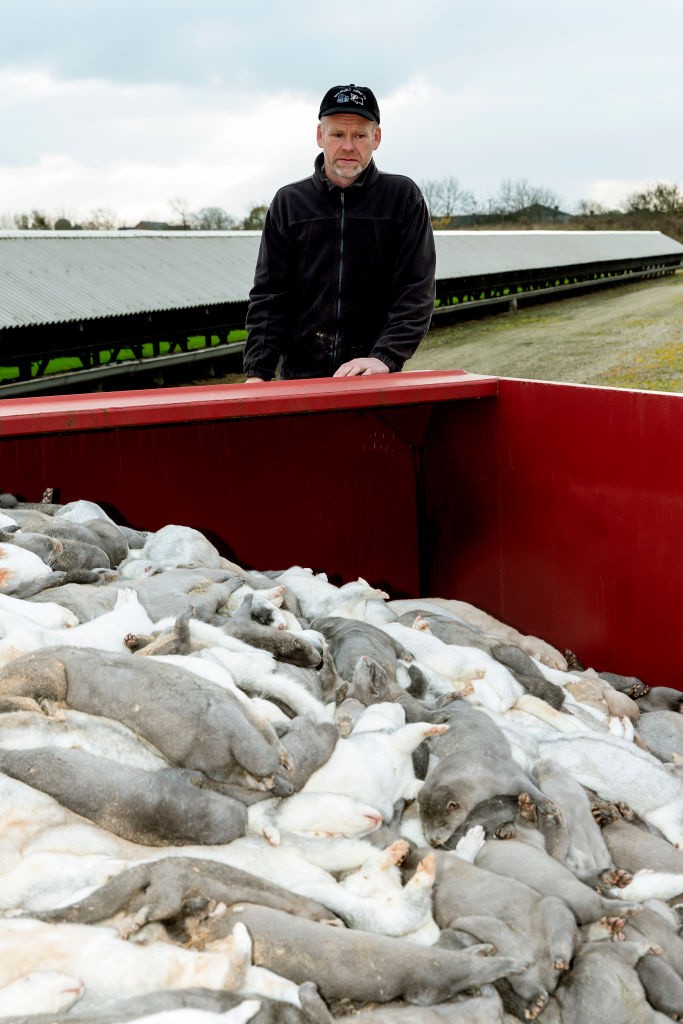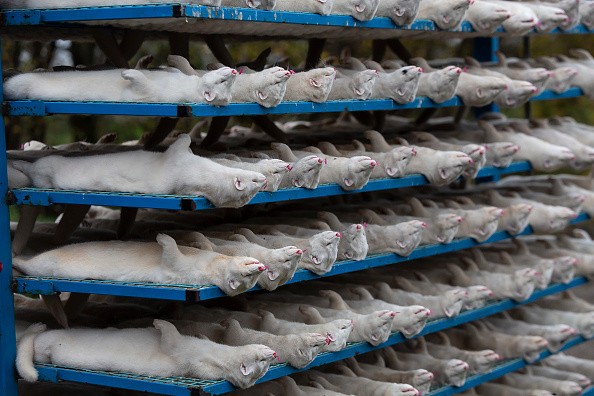According to the research, Denmark's Covid large mink extermination had no legal grounds. The annihilation of 15 million animals and the unjustified suspension of an entire industry cost taxpayers billions of dollars.

Official Investigation
According to an official investigation into Europe's first compulsory agricultural sector closure, which has cost taxpayers billions in compensation to farmers, the Danish government lacked legal grounds. It made "grossly false" comments when it ordered a mass mink extermination two years ago.
Denmark, the world's largest mink producer, said in November 2020 that it would slaughter its entire farmed mink population of 15 million animals because of concerns that a Covid-19 mutation spreading from mink to humans might jeopardize future vaccinations.
The eradication strategy was riddled with complications, such as stories of mink rising from mass graves, pollution dangers from buried corpses, and fears that escaping mink would infect those in the wild, creating a permanent viral reservoir from which new strains may infect people.
The illegality of the Cull
Mette Frederiksen, Denmark's prime minister, also stated that she was first told of the illegality of the cull after it had begun.
Despite reports of Covid epidemics in farmed mink throughout Europe and North America, Denmark was the only country to order a mass cull and suspend its business.
Denmark's State Serum Institute (SSI) said earlier this year that Cluster 5, the mutant virus that caused the mink extinction, was now declared extinct. In November 2020, the SSI warned that in the "worst-case scenario, Cluster 5 might spark a second pandemic, and Denmark could become the next Wuhan." In addition, vaccinations under development could not be effective."
Martin Merrild, a Danish mink farmer, stated, "They [the Danish government] panicked." It was a great shock since we lost our entire company overnight.
"Because it was close to skinning season, we might have decreased the number and preserved a tiny breeding population for the next year, which could have been vaccinated." "However, they neglected the standard methods for consulting with industry that we have in Denmark," he explained.
Denmark's prohibition on mink farming remains in effect, with a decision on whether to allow mink breeding to resume next year.
Correct Decision
Despite the investigation findings, Britta Riis, CEO of Animal Protection Denmark, believes a ban is a correct decision. She called mink farming "cruelty to animals, a threat to human health, and environmentally damaging." Given that the Danish taxpayer "had already paid billions... to shut down the sector," she believes the general people should "reap the advantages of the ban being permanent."
According to the most recent official statistics, just 15 mink farmers accepted a compensation package that would allow them to continue fur farming if the prohibition was lifted.
The government's compensation for the Danish mink industry is projected to cost between £1.8 billion and £2.2 billion. "I don't believe they realized our industry's importance in Denmark." "They assumed it was a minor niche and had no clue the choice would cost taxpayers billions," Merrild said.
Governmental Decision

According to the commission's assessment, the Danish government's claims during a news conference on 4 November 2020, when it announced the cull, were "grossly deceptive... given the very far-reaching and intense nature of the economic and social ramifications."
According to the findings, "it was evident that there was no legal foundation" for destroying all of Denmark's mink.
The panel also chastised Denmark's national police commander for his part in enforcing the cull order while knowing it had no legal foundation.
Steen Henrik Møller, a senior researcher in Aarhus University's Department of Animal Science, said the government made a choice "when there was a lot of worry about the Covid pandemic, and it wasn't apparent; how the virus was traveling across the mink farms." That was my major concern."
Even If
Even if the restriction is overturned, Møllerbelieves the mink industry will not return to Denmark. "The mink feed industry, the equipment sector, and the breeding stock are all gone." The 15 farmers who accepted the settlement that would allow them to begin farming may do so, but it will be extremely tough."
The International Fur Federation's CEO, Mark Oaten, stated that the investigation's findings raised "serious doubts about the management of the problem in Denmark." "The whole situation has been dreadful for the farmers and their animals," he continued, and "nothing will ever be able to make that right."
Related Article : COVID-19 Antibodies Found in Up to 40% of US' Wild Deer Population
For more health and medicine related news, don't forget to follow Nature World News!
© 2025 NatureWorldNews.com All rights reserved. Do not reproduce without permission.





